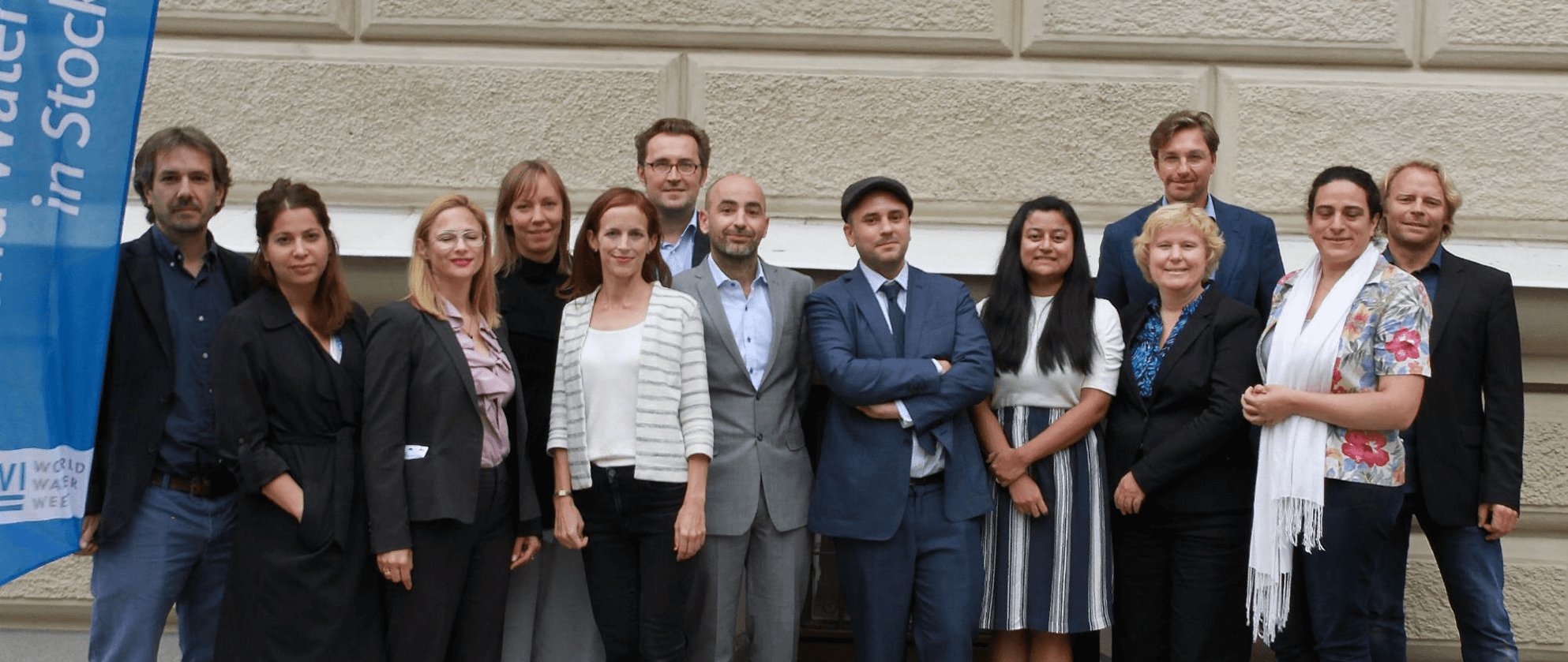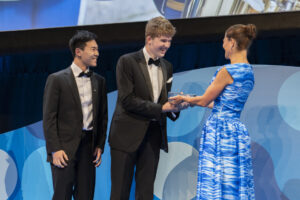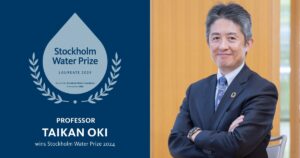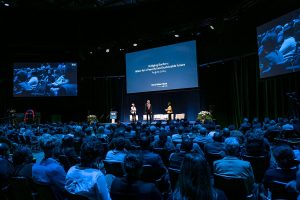WGF at World Water Week 2018
UNDP-SIWI Water Governance Facility will be hosting and participating in a number of events during World Water Week. Click here to see the full World Water Week 2018 programme.
Sustainability of WASH services: making it real
Sunday 26th of August 14.00 -14.30
Convenors: Directorate-General for International Cooperation, The Netherlands; United Nations Children’s Fund; UNDP-SIWI Water Governance Facility
Improving sustainability of WASH services is essential for achieving the SDGs. In this Sofa, we will discuss with UNICEF and DGIS how have been implementing a number of initiatives to make Sustainability real in the field of WASH. Mechanisms such as Sustainability Compacts-agreements signed at national level to address sustainability, and Sustainability Checks- regular spot checks to uncover sustainability challenges and address them – will be presented. Innovative financing mechanisms for Sustainability will be also discussed.
Regulation of water and sanitation services – From theory to practice
Sunday 26th of August 16.00 -16.45
Convenors: Global WASH Cluster; UNDP-SIWI Water Governance Facility; United Nations Children’s Fund; World Health Organization; Lisbon Water Center
This session aims to generate a deeper understanding of economic functions of the regulation of water and sanitation services. It will analyze the regulation of price setting, service quality, competition and consumer protection as they closely relate to other governance functions within the wider scope of enabling environment by using two case studies in which participants will be asked to contribute in a dynamic way to choose adequate regulatory tools. The session will highlight linkages between economic and public health functions of regulation through WHO Guide for developing drinking water quality regulations and standards.
Sex for Water: a women’s right violation
Monday 27th of August 16.00-17.30
Convenors: UNDP-SIWI Water Governance Facility; African Civil Society Network on Water and Sanitation
This event wants to bring light to one specific form of corruption that may dramatically affect women and girls: sextortion, when water services are only offered in exchange for sexual favours as a ‘bribe’. Sextortion hampers women and girls’ fundamental rights to non-discrimination and equal access to water, and their development. Because of gendered roles and responsibilities, it can impact on a whole household’s enjoyment of. The event will share conclusions from the WGF-SIWI report “Women and corruption in the water sector” with two case studies, and will be complemented by testimonials from women in the field.
Contribution of sanitation to Paris Agreement: What is stopping us?
Tuesday 28th of August 16.00-17.30
Convenors: Stockholm Environment Institute; UNDP-SIWI Water Governance Facility; Deutsche Gesellschaft für Internationale Zusammenarbeit; Bremen Overseas Research and Development Association; Sustainable Sanitation Alliance
Climate change is expected to exacerbate the availability and sustainable management of water and sanitation, while also threatening the benefits produced by water, sanitation, and hygiene (WASH) systems. At the same time, integrated, and well-designed water and sanitation systems with improved sustainable waste management can make important contributions to both, climate mitigation and adaptation; a fact that is often overlooked. This includes potentials of how a more sustainable sanitation can help address climate change and contribute to the Paris Agenda.
This event will explore the different angles of these links: how do sanitation issues feature in the National Determined Contributions (NDCs) to Paris Agreement? How are climate financing mechanisms considering sanitation? Cases of successful contribution of sanitation to combating climate change will be presented.
WASH bottleneck analysis tool (WASHBAT) to strengthen the enabling environment
Wednesday 29th of August 09:00-10.30
Convenors: United Nations Children’s Fund; UNDP-SIWI Water Governance Facility
The WASH bottleneck analysis tool (BAT) was created in 2012, contributed to by many sector organizations with the aim of aligning governments and sector partners behind a common understanding of the sector ‘building blocks’ (strategy, institutions, financing, M&E, capacity development). Until 2018, the tool has been applied in over 20 countries in Africa and Asia, with a plan for broad global rollout. The tool has proven to provide a unique opportunity to convene a wide range of stakeholders to identify the key bottlenecks to sector progress and develop a plan for addressing these bottlenecks. This event aims to share lessons from the implementation of the WASH BAT tool and learn what might be done differently in these and other countries in terms of identifying priorities and developing strategies to strengthen the WASH sector enabling environment.
Indigenous Peoples: Promoting Ecosystem Protection and Human Rights
Wednesday 29th of August 11.00-12.30
Convenors: WaterLex; UNDP-SIWI Water Governance Facility; Cap-Net UNDP / International Labour Organization; Inter-American Development Bank; Office of the United Nations High Commissioner for Human Rights
Indigenous peoples constitute 5% of the global population, yet they are often ignored in decision making, and they are one of the key people that truly understand the right to a healthy environment, and its connection with the right to safe water and sanitation. If we can strengthen the governance around community decision-making such that all people are considered, whatever race, gender, age, culture or disability, then the solutions are more likely to be both sustainable, and protective of human rights to water and sanitation. In this event, we plan to bring real case studies to light, with representatives from indigenous people, outlining the importance of inclusion and transparency in consultation processes, and how people’s rights to water and sanitation can be completely aligned with sustainable solutions, and can help to protect our environment as well as our people.
The source-to sea balancing act – development needs and ecosystem preservation
Wednesday 29th of August 14.00-15.30
Convenors: UNDP-SIWI Water Governance Facility; Swedish Agency for Marine and Water Management; Food and Agriculture Organization of the United Nations; International Union for Conservation of Nature; Delta Alliance; Action Platform for Source to Sea Management / Future Earth Coasts
More than half of the global value of ecosystem services is provided by coastal ecosystems, but much of it is jeopardized by human activities that take place upstream. Over the past 40 years, freshwater biodiversity has declined by 76%, marine biodiversity by 39% and around 70% of all wetlands have disappeared. Throughout the source-to-sea continuum, water connects ecosystems that provide critical services to humans and wildlife. Today, much of global sediment is trapped by dams with effects such as delta starvation and coastal erosion. Water in some rivers are so highly diverted that hardly any is left to reach the sea. Meanwhile, decreasing water quality reduces the resilience of both freshwater and coastal ecosystems.
There is increasing understanding of the need for source-to-sea approaches to address the pressing challenges in river basins and along coasts while responding to demands for development and adapting to climate change.








